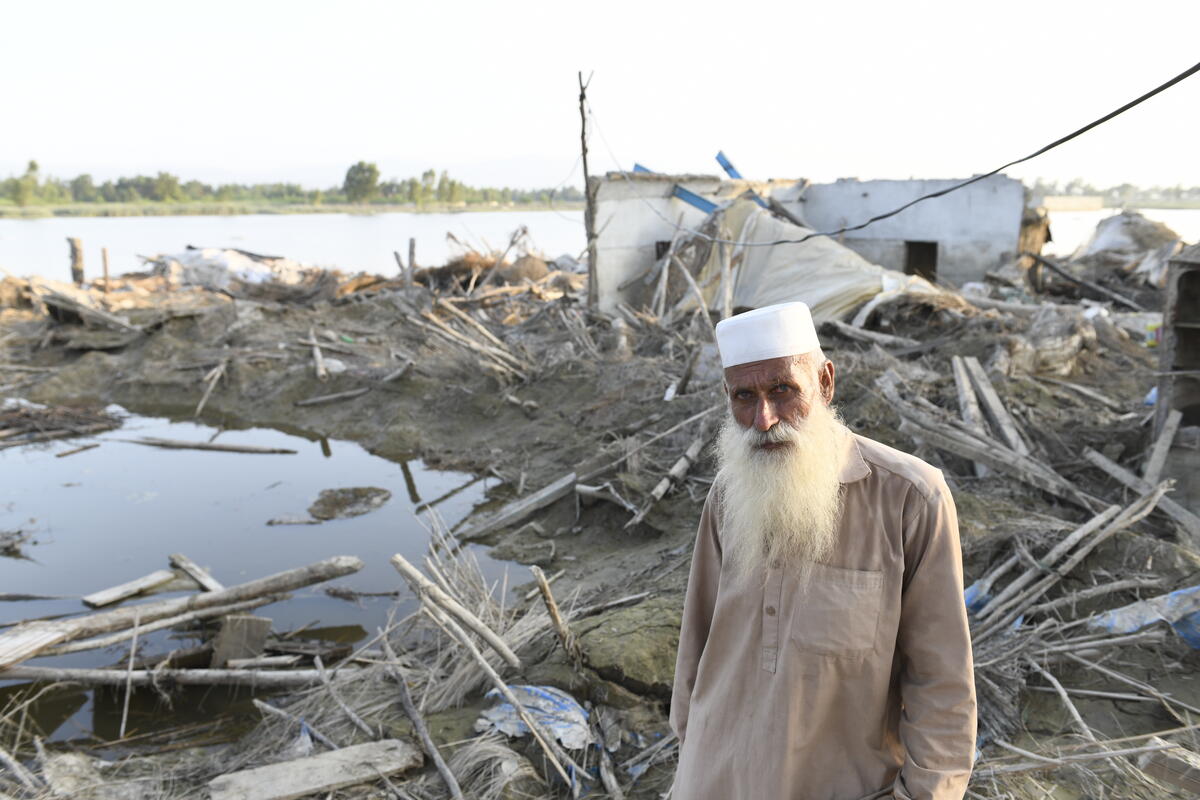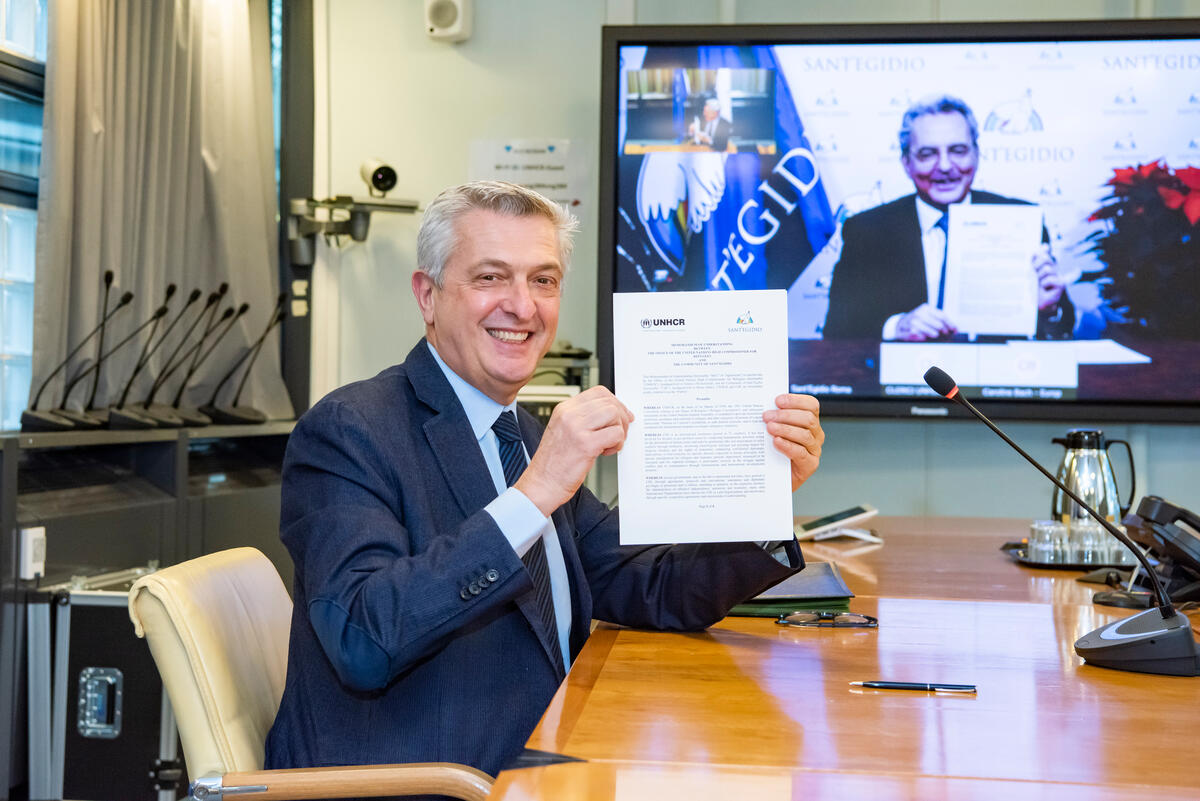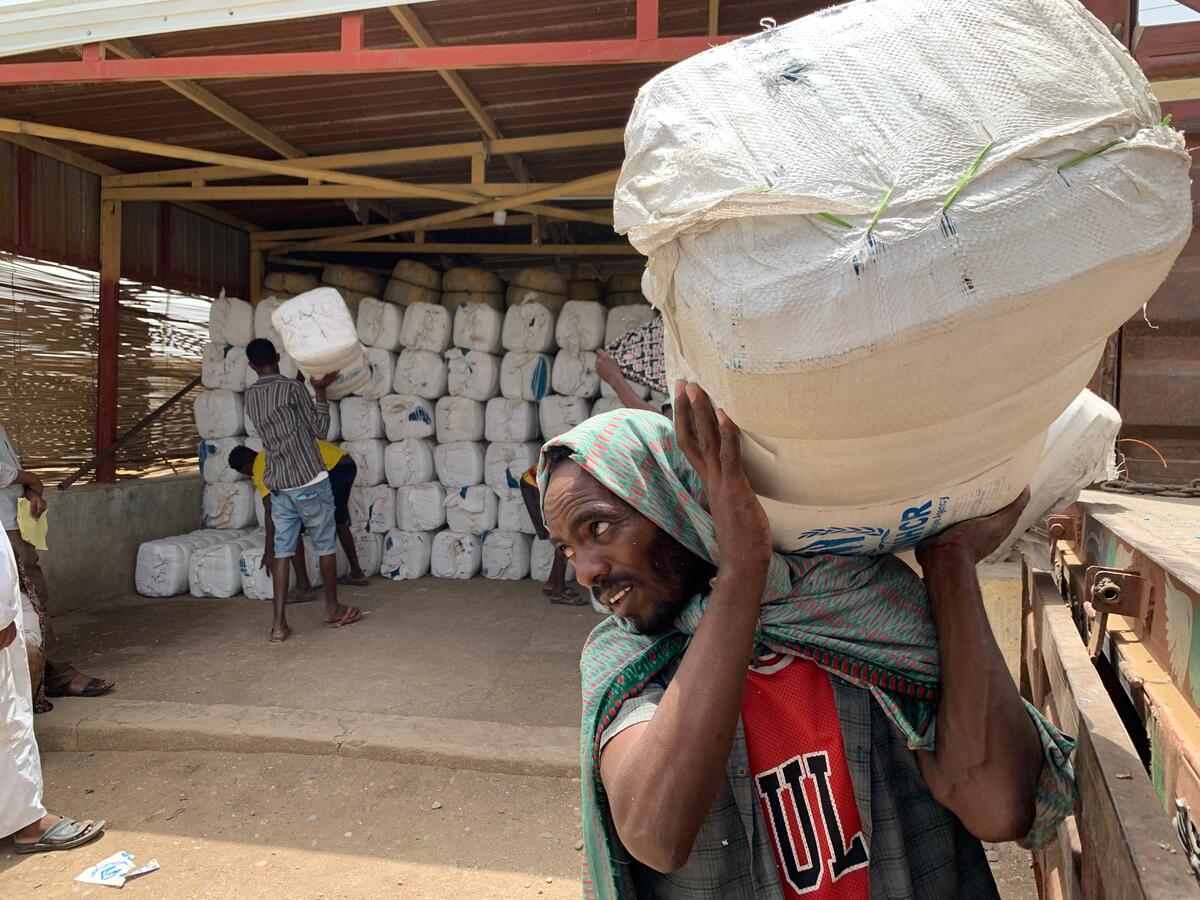UNHCR steps up aid for desperate Pakistani civilians
UNHCR steps up aid for desperate Pakistani civilians

SWABI, Pakistan, May 29 (UNHCR) - Abdulla, 45, is prematurely grey. He begins to cry as he unpacks a package of food and other relief supplies that he and his wife have just picked up from a "humanitarian hub" set up by UNHCR and other agencies to provide assistance to the hundreds of thousands of Pakistanis fleeing the bombs and mortar fire in the north-west.
He says he was grateful for the help from UNHCR and others. "But what we really want is to go back to our home." Abdulla was forced to leave his village in Buner district of Pakistan's North West Frontier Province along with his wife and nine children when fighting intensified nearby last week.
"I was afraid that my children would get killed. But I can tell you that when we were walking along the road and we arrived in Mardan district, all the inhabitants from Mardan were looking at us. I felt so ashamed that we had abandoned our land!"
He had little choice. Estimates provided by local authorities this week put the number of people displaced in and around north-west Pakistan's Swat Valley at 2.4 million, or more than 300,000 families, although the government is now cross-checking and verifying those numbers to ensure there is no duplication. Meanwhile, more and more people are being driven into Mardan and Swabi districts and beyond.
To help them, UNHCR is providing non-food aid. Some of that help is going to people, like Abdulla and his family, who are living outside of camps with host families. UNHCR is keen to reach more of these people with aid.
Many local families have seen the number of people living in their homes double or triple overnight as they provide refuge to new arrivals. Distribution began this week of the first batch of 5,000 tents for the most vulnerable families identified by UNHCR's sister agency, UN-HABITAT, in Swabi and Mardan districts. The tents are intended to be pitched in the grounds of individual homes. UN-HABITAT is also providing hygiene kits and latrines to households and helping with minor repairs to shelters and boundary walls, as well as to hand pumps and sanitation in local mosques.
At humanitarian hubs in Mardan and Swabi districts, UNHCR, through the local NGO partner Sarhad Rural Support Programme, is distributing plastic mats, buckets, jerry cans and kitchen sets to displaced people staying with host families. World Food Programme (WFP) is handing out food rations.
In camps, UNHCR is distributing material to its NGO partner, IDRAK, to provide some shade beside tents. IDRAK is providing the bamboo poles and tool kits for families so they can assemble the shade structures themselves.
Together with local authorities and other partners, UNHCR has identified two potential sites for new camps in Charsadda and Nowshera districts. Private citizens, for their part, continue to display generosity. Businessmen and others are buying food in bulk which volunteers then bundle into portable ration packages that include, for example, cooking oil, tea, sugar, cereal bars, beans and flour. "Drivers stop on their way into the city and give us 5,000 or even 10,000 rupees (US$123)" to buy more food for the displaced, explains one volunteer in Mardan, a local clothes dealer.
Relatively small numbers of families are still arriving in Jamala, Sheikh Shehzad and Sheikh Yaseen camps in Mardan, which are now mostly full. New arrivals are being moved to Yar Hussain camp in Swabi.
Some families say they were given only an hour to leave their homes and have no information about family members they left behind in their villages. They also talk about food and medicine shortages for the people still stranded in their home areas.
By Hélène Caux in Swabi, Pakistan








